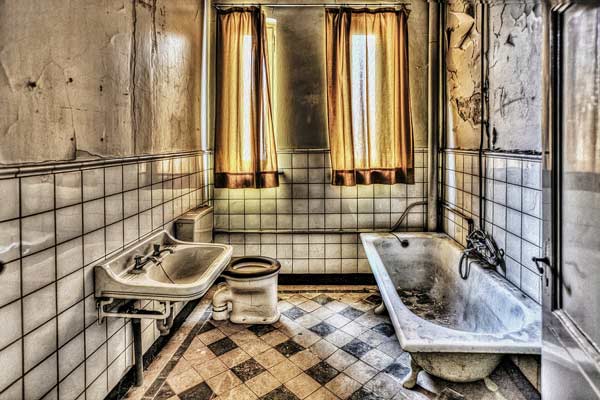 Do you find yourself spending more time in your shower cleaning out mold and mildew spots than you do cleaning yourself? With the constant cleaning and sanitizing, how is it possible that the mold keeps coming back?
Do you find yourself spending more time in your shower cleaning out mold and mildew spots than you do cleaning yourself? With the constant cleaning and sanitizing, how is it possible that the mold keeps coming back?
Mold and mildew occur when your bathroom has leaks, a lack of ventilation that keeps moisture from drying, and/or the presence of organic materials (cotton rugs and towels, paper products and drywall, etc.). Without solving these problems, there is no amount of cleaning you can do to achieve the long-term results you're looking for. So while this isn't the most severe plumbing issue you could face, we'll walk you through how to prevent mold and mildew in your bathroom.
Preventing Mold in Your Bathroom
- Use your bathroom ventilation fan, or install one if you don't have one. You can also crack a window for the same effect.
- Speaking of windows, keep your blinds open whenever possible. Mold can't grow in well lit areas, so the natural light will work in your favor.
- Keep your air conditioner on (and the vent open) or start using a dehumidifier to help keep moisture to a minimum.
- Invest in a mildew-resistant shower curtain, and be sure to wash it as often as possible and replace it frequently.
- Don’t keep anything in the shower. Store your shampoo, soap, bath poufs, etc. in your cabinets so mold has fewer places to grow.
- Wash your bathroom rugs and decorative towels frequently.
- If you're willing to repaint, choose a paint that is made specifically for bathrooms or kitchens because these likely contain a mildewcide. If the paints you like don't contain the mildewcide, it can always be mixed in!
Getting Rid of Bathroom Mold
- If there is mold growing on your caulking, we suggest you strip it away and recaulk.
- Clean your bathroom using bleach, vinegar, or hydrogen peroxide to destroy mold and combat further growth. We put the emphasis on "or" because these cleaning agents can be highly toxic when mixed, so you should only use one at a time.
- If you have a wall with rampant, recurring mold growth, clean the area to prevent the spread of spores then call a professional to replace the wall. You won't be able to clean and sanitize a wall the way you can a bathtub, which is why replacement is your best option.
If you need help fixing a mold inducing leak, or have other serious plumbing problems, just give us a call at (864) 242-5511 or click the banner below to schedule service online! You can also sign up for our Diamond Club to be sure your plumbing is getting regular check ups, and that little problems (like that leak) are caught before they turn into big ones.
If you enjoyed this article, please check out other posts on our blog and join us on Facebook, Twitter, LinkedIn, and Google+ to see why people call us "The Picky People's Plumber!"

.png)